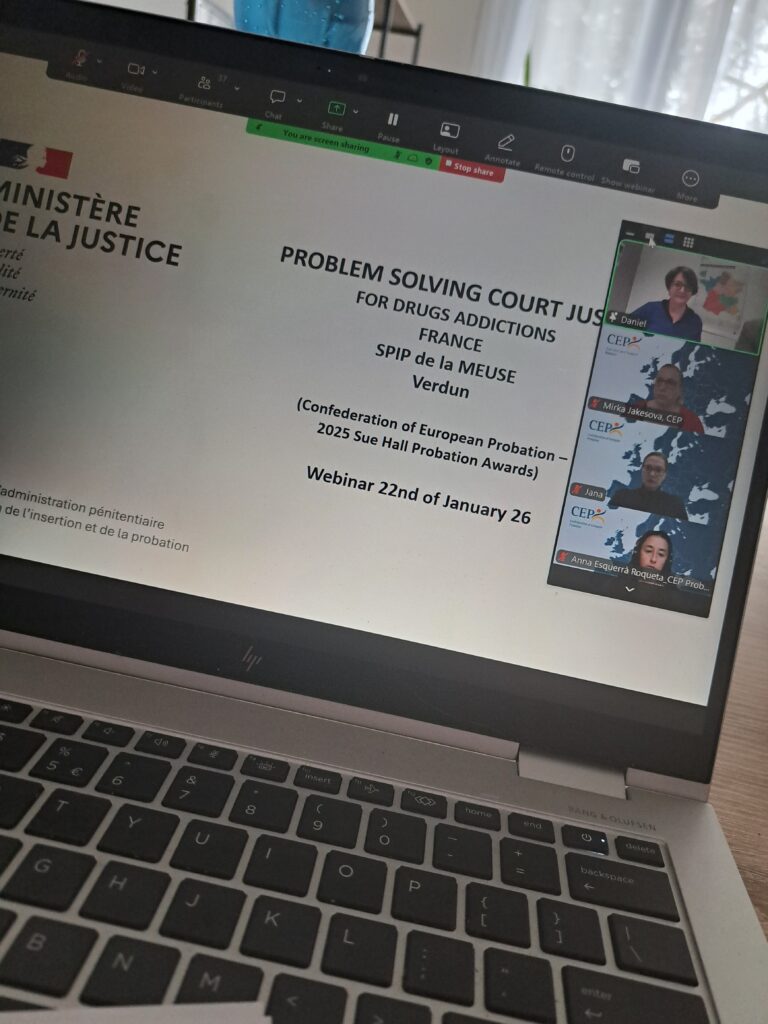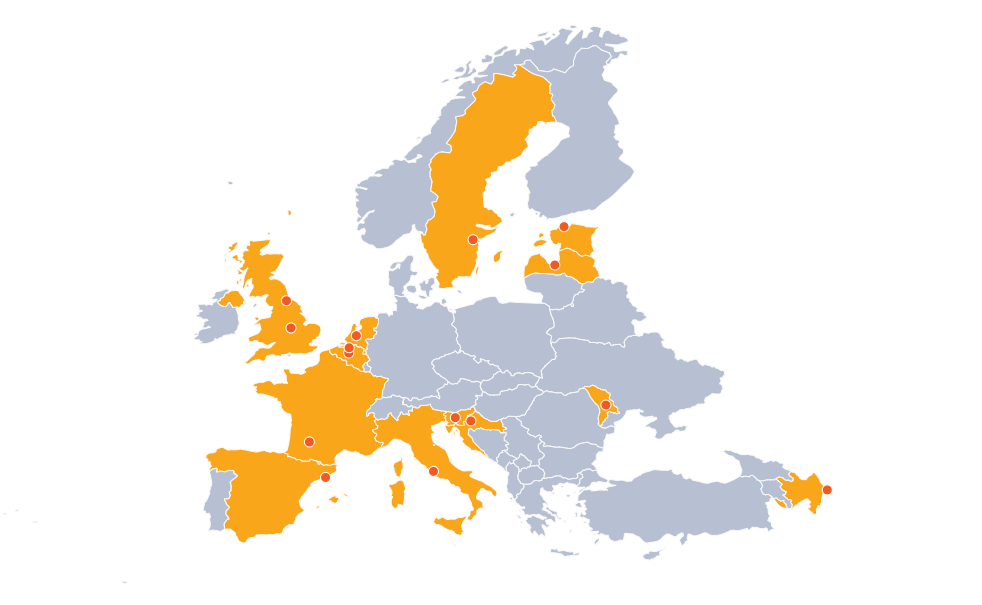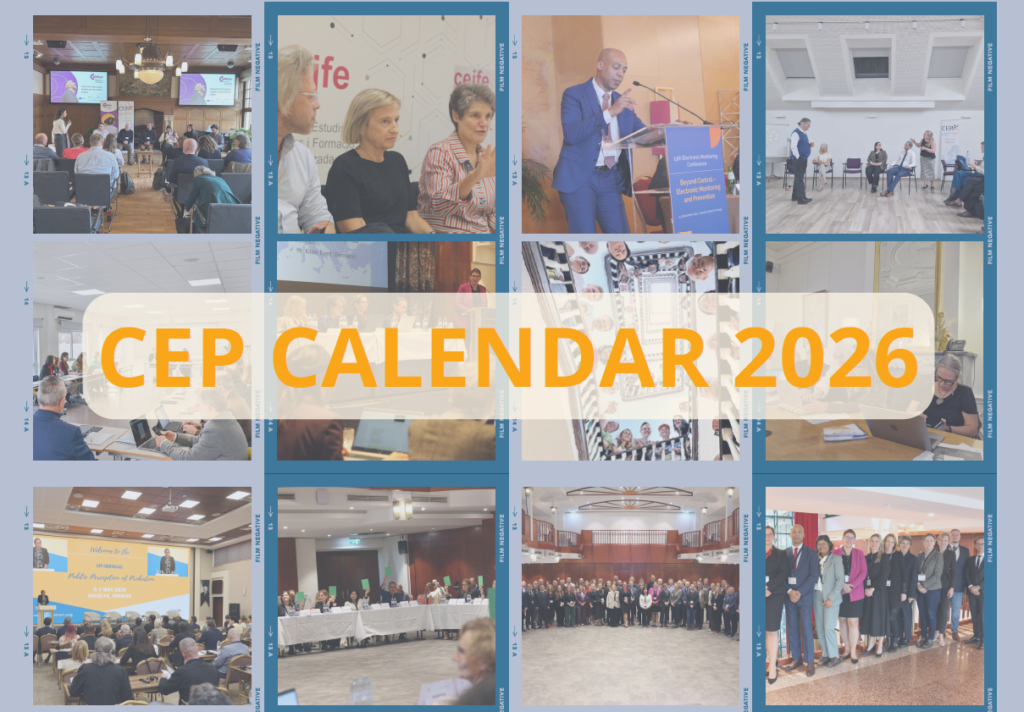Previous Article
News
Framework Decision on pre-trial supervision: what it means for the probation sector
On 23rd of October 2009 the European Union adopted a Framework Decision on the principle of mutual recognition regarding supervision measures. The final aim of providing this additional measure next to the existing provisional detention and unsupervised movement is to protect the general public. This principle is encouraged by CEP, which will promote and support the implementation process throughout Europe. By December 2012 Member States must have taken the necessary measures for the implementation of the Framework Decision.
The EU enacted this Framework Decision (2009/829/JHA) in continuation of two other Framework Decisions (2008/909/JHA and 2008/947/JHA) which were adopted one year earlier. These decisions were on the transfer of prison sentences and on the transfer of non-custodial sanctions and measures in EU Member States. The new Framework Decision (FD) also is based on the principle of mutual recognition of judicial decisions to judgements in criminal matters in all EU Member States. It enables a person who is subject to criminal proceedings in a Member State other then his resident State, to be supervised by the authorities in the State in which he is a resident whilst awaiting trial. Leo Tigges, Secretary General of the CEP, perceives this FD as very positive for the probation sector in Europe. “It is a new and challenging development which enables probation services in Europe to demonstrate what supervision in the community can achieve”. Firstly, a positive consequence is that the person subjected to criminal proceedings who is not a resident in the trial State is more likely to be treated in the same way as a person that is a resident of the State. “At the moment transfer of supervision is not yet possible, a person without accommodation in the concerned State is often given provisional detention. “The new Framework Decision has as objective to monitor the defendants’ movements in the community instead of unsupervised movements or provisional detention. This monitoring contributes in a safer community. As a consequence these measures might even turn out cost-reducing as monitoring is less expensive then provisional detention”, notices Leo Tigges.
This EU mandate in criminal proceeding is an opportunity for probation services in Europe. “The position of the probation sector will become more important, as cooperation between probation authorities and justice is needed and probation authorities will occupy an advising role in the proceeding”, says Leo Tigges. “Besides, probation authorities will have to collaborate with counterparts in European Member States. Even States where supervision is not part of Probation will have to create this situation so that the FD can be implemented in all Member States”. The EU formulated in its mandate clear protocols regarding the execution on the transfer of supervision. A decision on supervision measures should be recognized within 20 working days of receipt by the competent authority in the executing State. The executing State is obligated to take all necessary measures for monitoring the supervision measures without any delay. A.M. van Kalmthout (2009, p.93) reproduces in ‘Pre-trial Detention in the European Union’ a table that shows a range of non-custodial alternatives that have been developed and applied in various countries. House arrest, electronic monitoring and undergoing treatment are examples of alternatives to pre-trial detention.
“For successful implementation every Member State should take the Framework Decision seriously”, claims Leo Tigges. Commitment is required as different probation services need to work and communicate together in different official languages. This requires adjustment of the operation procedures which could be achieved by sharing proceeding information. Next to that, effective collaboration is desirable because of the strict time limits in which the Member States operate. “Probation services might even consider opening a ‘branch’ in other Member States in order to collaborate directly with the local probation services there. As such, the executing state can react faster on the decisions of the issuing state”, reflects Leo Tigges. “Another obstacle to be conquered will be the cooperation with the Member States judicial authorities. For instance the judges play an important role in the success of the execution of the Framework Decision as well. It is depending on the courts’ decision whether supervision measures are being imposed instead of provisional detention. Judges might perceive this Framework Decision as rather complicated and be suspicious about the execution of the supervision measures in the executing State. The court doesn’t want to take the risk that the defendant doesn’t show up for his trial. It could take some time to gain the confidence of the judges. That is also why Probation services should take the implementation process seriously and act professionally”.
By organizing conferences CEP will support the implementation of the Framework Decision. CEP will use at the same time a part of the output of the conferences yet been held about the other Framework Decisions, because they are also about mutual recognition. “In order to set the agenda for the next steps on the implementation process as efficient as possible, there will be worked on both Framework Decisions at the same time in the conferences to come”, tells Leo Tigges. Mutual knowledge of the different national systems is essential in the case on transfer of probation supervision. CEP will contribute in gathering knowledge about how the systems of the Member States are corresponding to each other. The first step will be an updated version of ‘Probation in Europe’ (Kalmthout & Durnescu, 2008) later this year. This book is providing a comparative overview of all European probation service systems. Based on these results CEP could drive the agenda for successful implementation as well.
“The probation sector should give this task priority”, recapitalises Leo Tigges. “These developments are a good opportunity to gain a better reputation, more respect and appreciation throughout Europe regarding probation services. CEP will do its utmost to encourage a successful implementation with regard to mutual recognition on supervision measures and reminding all Member States of the importance”.

Related News
Keep up to date with the latest developments, stories, and updates on probation from across Europe and beyond. Find relevant news and insights shaping the field today.
New

Uncategorized
CEP at the EMPRO Symposium hosted by ERA
04/02/2026
CEP actively contributed to the EMPRO Knowledge Exchange Symposium hosted by the Academy of European Law (ERA) in Trier on 28–29 January, bringing together practitioners, policymakers, and researchers to reflect on the implementation of EU Framework Decisions in probation and supervision.
New

Alternatives to pre-trial detention, Community Sanctions and Measures, Framework Decisions, Technology
Future of Criminal Justice: CEP’s Contribution to Key 2025 Dialogues
27/01/2026
Throughout 2025, CEP and its representatives actively participated in the online Technical meetings ahead of the HLF as well as the High Level Forum on Future of Criminal Justice taking place on 4-5 March 2025, 20-21 May 2025 and 1-2 October 2025 in Brussels, Belgium.
Recap

Alternatives to pre-trial detention
Recap: Webinar on Alternatives to Detention 2026
26/01/2026
On Thursday 22 January, CEP hosted the first webinar of 2025 on the topic of Alternatives to Detention. The session led by Ms. Marina Pajoni from the French Prison and Probation Service titled „Problem Solving Justice in Pracitce: The Meuse Probation Service´s Approach to Drug Addiction“ introduced an innovative programme developed by the Meuse Probation Service in close cooperation with the French Ministry of Justice.
New

Education and Training
CEP launches an interactive European map of probation education and training institution contacts
22/01/2026
The CEP is pleased to inform its members that a new dedicated section has been developed on the CEP website featuring an interactive map of Europe.
New

CEP Events
CEP activity calendar 2026
20/01/2026
As we begin the new year, we would like to thank all CEP members, partners, and participants for your continued engagement and valuable contributions. Your involvement plays an essential role in shaping CEP’s work and activities.
We are pleased to share the CEP calendar for 2026, which provides an overview of the events planned for the year ahead. We look forward to continuing our collaboration and welcoming you to upcoming CEP activities throughout the year.
Thank you for being part of the CEP community.
New

CEP members, Gender-based violence
Interventions Alliance’s Eden House Recognized as Outstanding
15/01/2026
CEP is delighted to share that Eden House, an Interventions Alliance residential service for women with high-risk or complex needs on probation, has been rated “Outstanding” overall by HM Inspectorate of Probation. In 2022, Eden House was honored with the CEP Public Protection Award. Our sincere congratulations to the team for this remarkable achievement.
Subscribe to our bi-monthly email newsletter!
"*" indicates required fields
- Keep up to date with important probation developments and insights.

